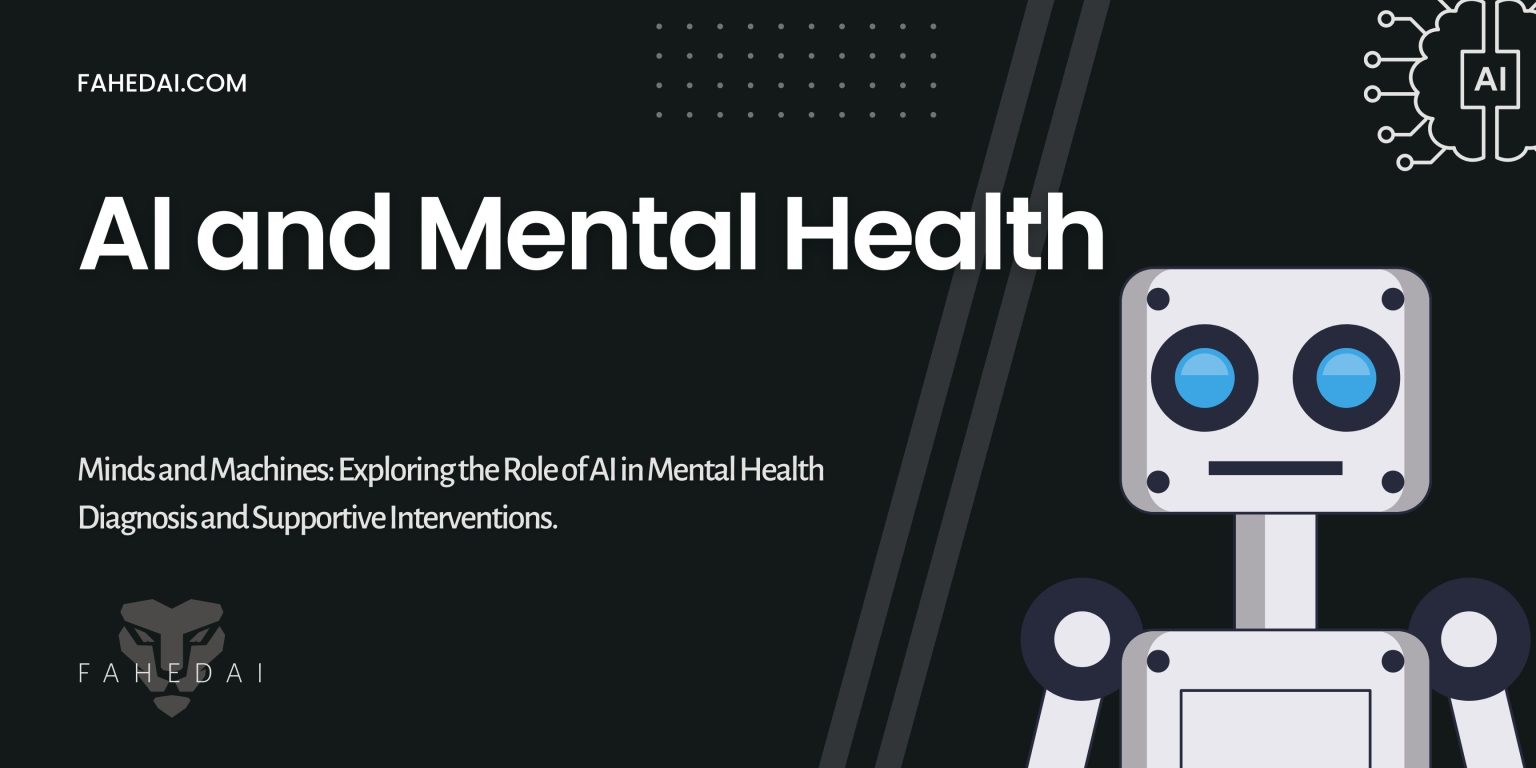AI and Mental Health
In recent years, there has been a growing interest in the intersection of artificial intelligence (AI) and mental health. With the increasing prevalence of mental health issues worldwide, AI has emerged as a powerful tool that has the potential to revolutionize the way we diagnose, treat, and understand these conditions. In this article, we will explore the various ways AI is being utilized in the field of mental health and discuss its potential benefits and limitations.
One of the main areas where AI is making a significant impact is in the early detection and diagnosis of mental health disorders. Traditionally, mental health disorders have been diagnosed based on self-reported symptoms and observations made by healthcare professionals. However, these methods can often be subjective and prone to biases. AI, on the other hand, can analyze vast amounts of data from diverse sources, including social media posts, electronic health records, and even wearable devices, to identify patterns and indicators of mental health disorders.
By analyzing language patterns, sentiment, and behavioral cues, AI algorithms can detect signs of depression, anxiety, and other mental health issues with remarkable accuracy. This early detection can lead to timely interventions and personalized treatment plans, potentially improving outcomes for patients. Moreover, AI can also assist clinicians by providing decision support tools based on evidence-based guidelines, enhancing their ability to make informed treatment decisions.
Another promising application of AI in mental health is the development of digital therapeutics. These are software-based interventions that aim to prevent, manage, or treat mental health disorders. AI-powered virtual assistants and chatbots have been developed to provide personalized support and guidance to individuals struggling with anxiety, depression, or stress. These digital companions are available 24/7, offering a convenient and accessible means of receiving support and coping strategies.
Furthermore, AI is being used to improve the effectiveness of psychotherapy. Virtual reality (VR) therapy, for instance, utilizes AI algorithms to create immersive and interactive virtual environments where individuals can safely confront their fears and anxieties. By simulating real-life scenarios, VR therapy enables therapists to guide patients through exposure-based treatments, helping them overcome their fears and anxieties in a controlled setting.
However, despite the potential benefits, it is important to acknowledge the limitations and ethical concerns surrounding the use of AI in mental health. The collection and analysis of sensitive personal data raise concerns about privacy and security. It is crucial to ensure that data protection measures are in place and that individuals have control over the use and sharing of their personal information.
Additionally, the use of AI must always be seen as a complement to, rather than a replacement for, human clinicians. AI can provide valuable insights and support, but it is essential for human professionals to be involved in the decision-making process and to provide the necessary empathy and understanding that AI is currently unable to offer.
In conclusion, AI has the potential to revolutionize the field of mental health by improving early detection, enabling personalized interventions, and enhancing the effectiveness of therapy. By leveraging AI technologies, we can hope to address the growing mental health crisis and provide better support for individuals in need. However, it is crucial that we navigate the ethical challenges and ensure that AI is used responsibly, always keeping the human element at the forefront of care. As AI continues to evolve, its role in mental health will undoubtedly become increasingly prominent, offering new insights and opportunities for improving the well-being of individuals across the globe.
Fahed Quttainah
